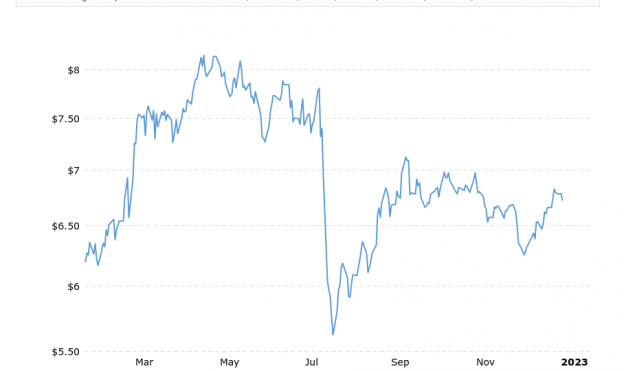
Speculating parasites should be crushed
A few weeks ago I provided my take on how, and why, gas prices are being flagrantly manipulated. There’s a darker side to the speculation and market manipulations that have been happening. This is from last October.
As economies tumble, inflation surges and global food prices soar to critically high levels, two sectors seem to have hit the jackpot in 2022 – energy giants and grain traders.
An estimated 345 million people may now be in acute food insecurity, compared with 135 million before the pandemic. Vulnerable populations face destitution in poorer food-importing countries such as Lebanon, Yemen, Sudan and Somalia. Poor consumers in rich countries are struggling to put food on the table…
For decades, four companies dominated the global grain trade and at least 70% of the market. They are collectively known as ABCD (Archer-Daniels-Midland Company, Bunge, Cargill and Louis Dreyfus). China’s state-owned COFCO and a couple of other contenders in Asia are now joining the ABCD to share in booming profits. Cargill reported a 23% increase in revenues to a record $165bn by mid-2022. And during the second quarter of the year, Archer-Daniels-Midland had its highest profits ever.
As food prices skyrocket and hunger rises, and with the prospect of still more supply shortages, such profiteering is clearly unjust and a sign of abject market failure. The price spikes have happened despite abundant public and private reserves of grain. There is no correlation between the grain traders’ outsize profits and what they are delivering in terms of food security or sustainability. The ABCD have failed to meet their basic functions of ensuring food gets to the people who need it, and does so at a stable price.
(Naked Capitalism)
Here’s a graph, current to the date of this posting, of corn prices for the past year. You can see what the article talks about. But why the current high prices, after the plummet last summer, after the US harvest has mostly now come in? Oh, if you look around you find talk about Ukraine, and Brazil, and EU resistance to US GM corn. But that’s all about as convincing as claims that gas price fluctuations have all been about unavoidable “market forces.”

Whatever the increasingly ridiculous (and intellectually, though unfortunately not in practical terms, irrelevant) market fundamentalists claim, the laws of supply and demand are not really “laws” in the same sense that, for example, the Law of Gravity is. Matters such as how much to produce and how much to charge for it are human decisions. And such decisions tend to be a lot less often grounded in considerations of so-called “supply and demand” than they are of plain old greed.
Commodities markets are supposed to be regulated by the Commodity Futures Trading Commission. Which, if you look around, you generally see described as chronically underfunded and understaffed. But of course that’s not by design, right?
If it was up to me commodities speculation would be banned outright. I get that it wouldn’t be easy to put together laws that would effectively ban the despicable antics of greedheads, while at the same time allowing for the hedging needed for industries to maintain raw materials supply chains at known prices (which is supposed to be what commodities markets are actually for). But I’m sure that intelligent people who aren’t just in it for themselves – in a word, progressives – could come up with something.
Addendum: I ran across a URL to a related item, that I’d saved a while ago, and it’s worth adding here.
“We’re in a market where speculators are driving prices up,” Michael Greenberger, former head of the Division of Trading and Markets at the U.S. Commodity Futures Trading Commission, told Mongabay in July.
“Commodity markets are supposed to be hedging markets for people who are dealing with the commodity involved,” Greenberger said. “In the case of wheat, it would be farmers and people buying wheat. But if we looked at it, there would be banks in there with no interest in what the price of wheat is, writing swaps and controlling this price.”
“It’s too easy to say the war in Ukraine has unbalanced all these markets, [or that] supply chains and the ports are shot, and that there’s a supply and demand reason for these prices going up,” Greenberger added. “My own best guess is anywhere from 10% to 25% of the price, at least, is dictated by deregulated speculative activity.”
(Common Dreams)
Thanks for your feedback. If we like what you have to say, it may appear in a future post of reader reactions.


